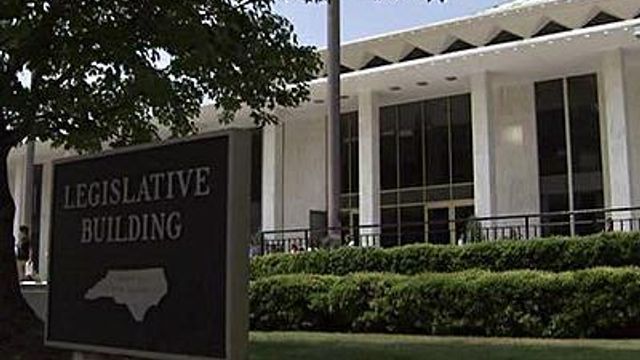Traffic
Appeals Court hears Highway Trust Fund lawsuit
Attorneys for the state and the plaintiffs argued their case in the nearly 6-year-old case involving the constitutionality of a transfer used to balance the state budget.
Posted — UpdatedRALEIGH, N.C. — The North Carolina Court of Appeals heard arguments Wednesday over a six-year lawsuit against former Gov. Mike Easley and state concerning the Highway Trust Fund.
Then-Department of Transportation Secretary Jim Harrington and Sen. Bill Goldston, who lobbied to create the fund in 1989, claim Easley and the Legislature violated the state constitution when they transferred $205 million to help balance the 2001-2002 budget.
Lawmakers have said they borrowed the money from the trust fund with the intent to pay it back with interest.
The Highway Trust Fund provides multiyear funding for highway construction and maintenance, and funding is collected from gasoline taxes, highway use taxes and motor vehicle registrations to pay for seven urban loops throughout the state, including N.C. Highway 540.
During Wednesday's hearing, Dan Boyce, an attorney for Harrington and Goldston, argued that taxing the public requires the funding to be used for its designated purpose and that the state violated the constitution by reallocating the money.
"There's already a General Highway Fund," Boyce said. "Why did you have the need for a Highway Trust Fund if you didn't mean to protect the money for that specific purpose?"
Norma Harrell, an assistant attorney general representing the state, argued, however, that the governor has the duty and the authority to balance the budget at whatever costs and that he or she also has the authority to get money, wherever appropriate.
"That's the kind of authority and duty the governor must be given leeway to execute, because our constitution prohibits a deficit," Harrell said.
Boyce argued that although the governor has a right to balance the budget, it is by cutting spending.
"Here, they didn't cut spending," Boyce said. "They created new revenue by dipping into the trust fund and moving it over to the general fund."
The plaintiffs in the case say they don't want the $205 million to be repaid, but given the state's current budget crisis with a projected $2 billion shortfall, they are concerned that it could happen again.
"There ain't no money in state government, as you know, anymore," Goldston said following the hearing. "That would be ludicrous to say you have to pay back something you don't have."
In 2006, the state Supreme Court overturned a ruling by lower courts that Harrington and Goldston had legal standing to sue as taxpayers.
A later ruling by the trial court was in favor of the state, but the new appeal claims the trial court judgment erred when it did not fully address the constitutionality of the transfer.
"This is a constitutional issue, and all I heard this morning was tap dancing from one article to another, back and forth," Goldston said. "But it's a simple issue."
"If the Court of Appeals doesn't rule in our favor, can there ever be another trust fund? I mean, if you're not going to follow the constitution, then why have it?"
• Credits
Copyright 2024 by Capitol Broadcasting Company. All rights reserved. This material may not be published, broadcast, rewritten or redistributed.






